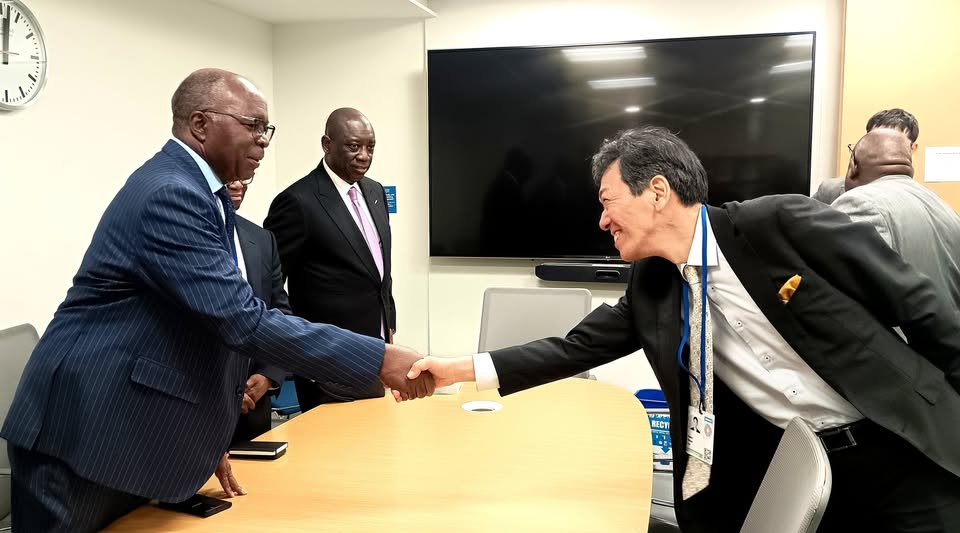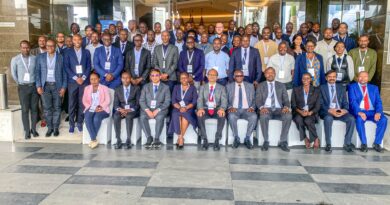Musokotwane Urges Stronger Global Coordination in Debt Restructuring at G20 Sovereign Round Table
Zambia’s Finance and National Planning Minister Dr. Situmbeko Musokotwane has called for stronger coordination mechanisms to accelerate global debt restructuring processes, especially with non-bonded commercial creditors. Addressing the G20 Global Sovereign Round Table in Washington D.C., Dr. Musokotwane shared Zambia’s experience with debt restructuring and stressed the need for early information-sharing frameworks.
“Consensus with non-bonded creditors remains a challenge, prolonging the restructuring timeline,” the Minister stated. He emphasized the importance of engaging these creditors early to ensure smoother negotiations and faster progress.
The meeting, held on the sidelines of the IMF and World Bank Spring Meetings, provided a platform for Zambia to advocate for improved practices under the G20 Common Framework. Dr. Musokotwane also urged greater collaboration with regional development banks to support debtor countries facing prolonged financial stress.
He highlighted that Zambia has already signed bilateral agreements with France and Saudi Arabia and expects more agreements by September 2025. “We want to close the debt restructuring chapter and shift focus to growth, growth, and growth,” Dr. Musokotwane said firmly.
In a bilateral meeting, Japanese Vice Minister of Finance for International Affairs Atsushi Mimura lauded Zambia’s efforts under the G20 framework, describing them as a foundation for sustainable development. Mr. Mimura confirmed Japan’s support for the World Bank-led Resilient Inclusive Supply Enhance (RISE) Partnership Initiative, which aims to boost Zambia’s mineral value chain through strategic investment.
Japan also pledged to work closely with Zambia ahead of the 9th Tokyo International Conference on African Development (TICAD) scheduled for August 2025 in Yokohama.
Later, at a high-level gathering at the Spanish Embassy in Washington D.C., Dr. Musokotwane emphasized the importance of shifting development finance focus from governments to the private sector. Speaking on the upcoming UN International Conference on Financing for Development set for Seville, Spain in June, he emphasized the need to redesign development conferences to better accommodate and empower private sector actors.
“A development paradigm without private sector integration is doomed to fail in delivering jobs and revenue,” he said, calling for collaborative models that include global financial institutions and private investors.
Meanwhile, Dr. Samuel Munzele Maimbo, Zambia’s and COMESA’s candidate for the presidency of the African Development Bank, joined Dr. Musokotwane at the bilateral meetings. He shared his vision for a stronger Pan-African bank ahead of the elections scheduled next month in Abidjan, Côte d’Ivoire.
The Zambian delegation also held bilateral discussions with representatives from the World Bank, IMF, United Kingdom, Ghana, Liberia, and others to deepen cooperation and attract support for Zambia’s economic transformation agenda.
Accompanying Dr. Musokotwane are top government and financial officials, including Secretary to the Treasury Felix Nkulukusa, Bank of Zambia Governor Dr. Denny Kalyalya, and ZRA Commissioner General Dingani Banda. Members of Parliament Hon. Sibongile Mwamba and Hon. Sibeso Sefulo are representing Zambia in the Global Parliamentary Forum on the sidelines of the Spring Meetings.



